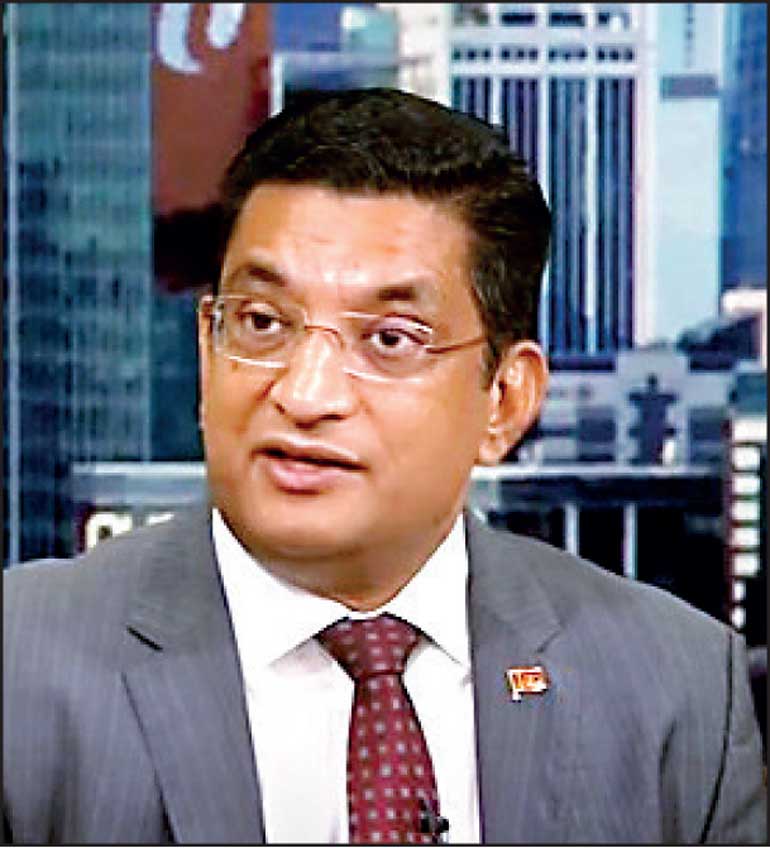Saturday Feb 28, 2026
Saturday Feb 28, 2026
Wednesday, 10 July 2024 00:08 - - {{hitsCtrl.values.hits}}

Foreign Affairs Minister Ali Sabry
In a compelling narrative, Foreign Affairs Minister Ali Sabry announced on Monday that the country’s economy, emerging from a severe crisis, is demonstrating remarkable resilience and improvement.
Speaking on CNA’s Asia First program in Singapore, Sabry highlighted key indicators of economic recovery, including a surge in tourism and a strengthening of the rupee.
Sabry elaborated that the completion of significant restructuring efforts, both locally and with international bondholders, has nearly restored the country’s debt sustainability.
He said this progress is expected to reopen access to international markets for concessionary loans, which are crucial for economic revitalisation.
“Our focus now is on fostering growth to improve living standards and income levels,” the Foreign Minister stated.
He underscored the importance of attracting investments across various sectors to stimulate economic growth.
“We managed to avert a deeper crisis and have achieved stability, but growth has not yet taken off. Our challenge now is to spur growth, requiring substantial investment, particularly in key sectors,” he reflected on the recent economic turmoil.
Regarding China’s involvement, Sabry mentioned that Sri Lanka owes around $ 8 billion of its $ 33 billion external debt to China.
He praised China’s cooperative stance in the restructuring process, alongside other key bilateral creditors like Japan, India and France.
Chinese investments, he added, are vital for revitalising Sri Lanka’s economy.
Sabry also outlined a multi-faceted strategy for sustainable and inclusive growth. This includes combating corruption, enhancing service efficiency, bridging the digital divide, and investing in renewable energy, port development and positioning Sri Lanka as a maritime and air traffic hub.
The Foreign Minister also pointed to significant economic milestones achieved recently. “Sri Lanka has transitioned from a double-digit recession to a 5.3% growth rate. Tourist numbers are rising, the Sri Lankan rupee has appreciated by 20-25%, and our reserves are increasing. For the first time in six years, we have a primary account balance,” he explained.
However, Sabry acknowledged that the benefits of these improvements have not yet translated into increased income for the populace, given the high inflation rates. “Our immediate goal is to raise incomes and salaries, which is our focus for the next 6-18 months,” he pointed out.
He said to protect the most vulnerable; the Government has rolled out the Aswesuma social protection program, providing direct cash transfers to around 2 million families living below the poverty line.
Sabry asserted that these measures are aimed at ensuring the economy’s stability and preventing a recurrence of the severe economic conditions experienced two years ago.